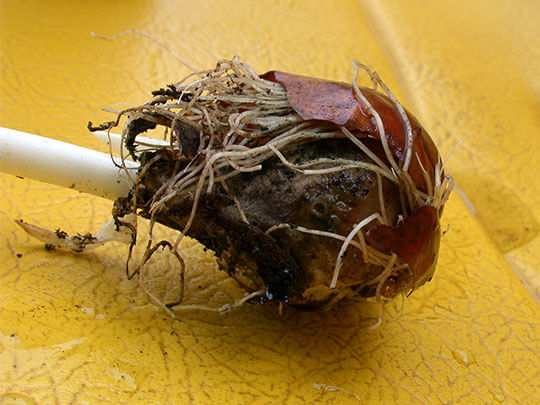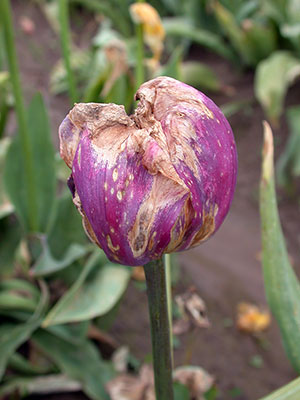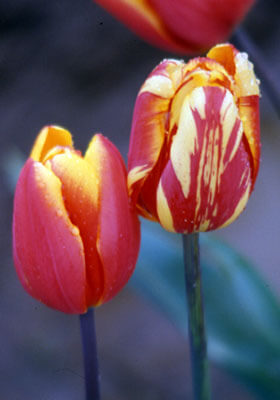Diseases
Tulip Fire
Tulip fire is a fast spreading disease that affects tulips and can be prevented by rotating tulip bulbs every three years, removing flower heads before petals fall, and removing diseased or moldy looking leaves.
If you notice your flowers are affected remove the diseased plats and surrounding soil as soon as you notice, and throw away. Never compost diseased or infected looking bulbs as that will cause it to spread.
- At fall time dig up and inspect remaining bulbs and plant in a different location to prevent further spreading.
- If you catch the disease in the early stages you may be able to save them.
- Spraying foliage diligently with chlorothalonil; Bonide Fung-onil is an example of multi-purpose fungicide available at your local Al’s; this will help kill the disease
Bulb Rot

A disease, not just too much water!
The best treatment is prevention. Healthy bulbs are firm at the base and feel heavy for their size.
- When you transplant your bulbs check that they feel healthy and discard those that have disease.
- Do not compost diseased plants.
Herbicides
Herbicides like “Casoron” prevent the weeds from growing but they also can make your bulbs come up deformed or not at all. Herbicides can spread with watering so be very careful around your bulbs.
- Hand weeding is best around your bulbs.
Gray Mold & Fungal Diseases

The plants will look stunted, yellow and moldy. Remove the diseased plant by pulling the leaves and stem, causing the bulb to either come up or to die.
- Do not compost diseased plants.
- Having space between your bulbs will help prevent this disease.
- Using a fungicide on your bulbs like you do your roses will also help prevent the disease.
- High nitrogen fertilizers may also increase fungal diseases.
Viruses
Viruses

The most obvious symptom of viruses is that the color of the tulip has turned striped. Beautiful to look at, but the bulb will not last and aphids will spread the disease to other tulips.
- To remove the diseased plants pull the leaves and the stem. The bulb might come up, if not, it will die because it has no leaves for nutrients.
- Do not compost diseased plants. Using clippers can also spread the virus so clean them with a bleach solution; or just use your hands.

